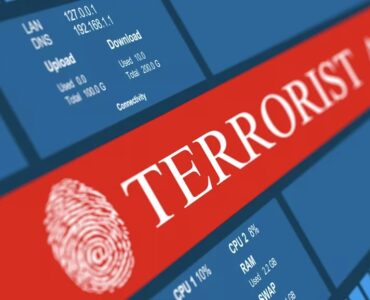
Ramadan
Ramadan, which occurs during the ninth month of the Islamic calendar, is an important time for Muslims, whether they live in New York City, Tehran, Cairo, or Jakarta. While there is great diversity in Islam, for most Muslims this month reflects an intensification of the religious devotion and contemplation that characterizes many Islamic traditions from prayer (salat) to pilgrimage (hajj/ziyarat).
Ramadan is structured around food, a lack of food, and prayer — the early meal before dawn, the fasting during daylight, the meal at the end of the day, and the daily prayers. Sunni Muslims pray five times a day and often perform extra prayers (tarawih) during the month of fasting. Shi’a generally pray three times a day and typically do not perform these extra prayers, although this is somewhat dependent on their sectarian identity (Twelver/Ithna Ashariyya, Sevener/Ismaili, Zaydi, Alevi, to name some). Shi’a Muslims have extra supplications throughout the year that are continued during Ramadan, such as Du’a Tawassul, a supplication that appeals to the Imamate (a Shi’a belief that all imams should be spiritual descendants of the Prophet Muhammad) for guidance and protection.
Readings from Islam’s revelatory text make this month particularly important, as many Muslims read the entire Qur’an over the month of fasting. The attention given to the Qur’an reflects the belief that the Prophet Muhammad first received the revelations through the Angel Gabriel (Jibril) during the month of Ramadan. Ramadan is looked at as an especially holy time, reflected in such traditions as Prophet Muhammad’s statement,“When Ramadan begins, the gates of heaven open, the gates of hell close, and demons are chained.”
Ramadan is neither a duty nor a series of rituals and performances. At its core lie important theological beliefs about suffering, redemption, and hope that revolve around the idea of dhikr, or the remembrance of Allah. Ramadan is about remembering God through a disciplining of the body, mind, and heart that asks Muslims to reflect on the less fortunate—the poor, the hungry, those thirsty for water. These thoughts cross one’s mind naturally. When one is hungry, one thinks of the poor and starving. When one is thirsty, one cannot help but think of all those in the world who are without safe, potable water.
During the month of Ramadan, Muslims typically abstain from food, water, bad speech, sexual intercourse, and malicious behavior during the daylight hours. Islam’s emphasis on mercy and compassion is evident in the many exceptions made for those who are not required to fast—menstruating, pregnant, and breastfeeding women, those with medical conditions, individuals who are ill. Ramadan’s emphasis is thought to be on the dietary fast, or the abstaining from food and water during daylight, but even this practice is intended to purify the heart. According to Rumi,“Shari’ah is just theoretical knowledge.” It is only when these rituals train the heart that one comes to know Allah. One knows Allah through remembrance, an important theme in the Qur’an:
“Remember your Lord over and over; exalt Him at daybreak and in the dark of night.” 3:40
“When you are not in prayer, remember God standing and sitting and lying down.” 4:103
“Remember the Lord in your heart, humbly with awe and without utterance, at dawn and at dark, and be not amongst the neglectful.” 7:205
“The hearts of those who believe are set at rest by God’s remembrance, indeed, by God’s remembrance (only) are hearts set at rest.” 13:28
Ramadan is a time of the year during which the forgetfulness that builds up in one’s heart is remedied through prayer, and bodily and spiritual fasting, all of which are practices directed toward remembrance. This month is one in which religious contemplation retrains the heart and the body for the coming months, establishing a cycle that is mnemonic, restorative, and deeply spiritual.
Ramadan
115 – 003
https://discerning-Islam.org
Last Updated: 03/2022
See COPYRIGHT information below.



